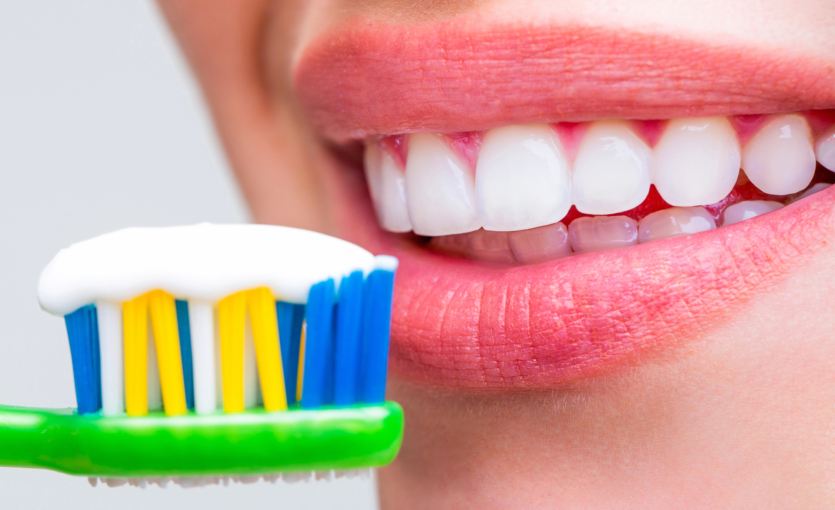
Usually, people are used to the fact, that brushing their teeth is a standard morning and evening procedure, that takes just a few minutes and does not cause any difficulties.
However, is it really enough to simply put toothpaste on the brush, put it in your mouth and brush for about two minutes, and then rinse your mouth and go about your day? Dentists, who have studied the process of brushing teeth, have come to some surprising conclusions.
In particular, they advise not to rinse your mouth after brushing your teeth. This small difference will allow the protective layer of fluoride to remain on the tooth enamel longer, improving protection against tooth decay. Oral cavity is a complex ecosystem. Teeth are covered with bacteria, that form a sticky biofilm, better known as plaque.
These bacteria consume sugars from the food we put in our mouths and produce acids, that lower the pH level on the surface of our teeth. If this process outpaces natural remineralization, it can lead to the dissolution of tooth enamel crystals.
Fluoride changes this chemical composition and promotes tooth remineralization. It slows down the loss of minerals by acids and accelerates the restoration of enamel in conditions of increasing pH.
In the presence of fluoride, the enamel that is being restored forms a stronger mineral fluorapatite, which is resistant to acids up to a pH of 4.5. Each action of the acid strengthens the protective properties, and fluoride also has a direct antimicrobial effect on the bacteria, that cause caries. That is why, it is very important to remember to brush your teeth.
However to achieve maximum efficiency, fluoride must be stored in the body. Higher fluoride levels, which decrease more slowly, provide better protection for tooth enamel throughout the day. However, if rinse your mouth with water after brushing your teeth, you are simply washing away these fluoride stores. Saliva also plays a role in maintaining oral health, but it is far from as effective as fluoride. Therefore, after brushing your teeth, it is better not to rinse your mouth, but to spit out the excess paste and let the fluoride do its job.
Several clinical trials, specifically examining the effect of rinsing with water on fluoride levels after brushing, have revealed significant negative effects. In particular, Swedish researchers from University of Gothenburg in randomized crossover study observed dental students, brushing their teeth with fluoride toothpaste and then rinsing their mouths in different ways.
It was found, that rinsing the teeth with a large volume of water — three times 10 ml, significantly reduced fluoride levels in saliva, interdental fluid and plaque, compared to a single rinse with 5 ml of water. The rinsing time, whether it was 10 seconds or one minute, was practically irrelevant. It was the volume of water that was of key importance.
Other research from 2009 showed, that participants, who rinsed their mouths with water after brushing their teeth, the fluoride excretion curve was noticeably steeper, with fluoride levels often returning to baseline within 30 minutes. In those who did not rinse their mouths, the therapeutic level of fluoride was maintained much longer.
One more thing cross-sectional study found, that the lack of rinsing increases the concentration of fluoride in the mouth, and the fact, that fluoride remains locally in the mouth and is not detected in the blood. Meanwhile, dentists note, that brushing your teeth remains the key. You can rinse your mouth with water after brushing, but if you brush your teeth regularly and properly, there will be no significant deterioration.
Do not rinse your mouth after brushing your teeth The National Health Service of the United Kingdom, justifying this, by saying, that rinsing washes away fluoride residues from toothpaste, thereby reducing its effectiveness for dental health. A similar position is taken by American Dental Association (ADA). Universities in Europe, the United States, and the Philippines independently came to the same conclusion and offered similar recommendations.
However, most people continue to rinse their mouths after brushing their teeth. Mostly we do this, because we have been taught to do so since childhood. And it made some sense. The fact, is that fluoride is not dangerous for adults. However, children, especially young children, are more sensitive and have a more developed swallowing reflex. That is why children are taught to rinse their mouths after brushing their teeth so that they do not swallow the toothpaste.
Source: ZME Science

Spelling error report
The following text will be sent to our editors: